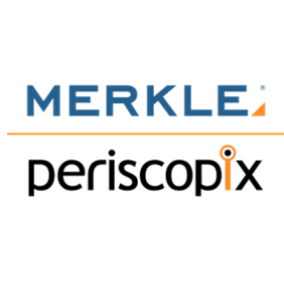More Bang for Your Buck: How to Get the Most Out of Low Budget PPC Campaigns
04 Aug 2015

1. Define and Refine
First things first, what do you want to get out of your AdWords campaign? Are you an SME looking to increase your brand awareness, keen for conversions or need the lowest CPA? Having a clearly defined goal means tracking your success and optimizing your account will be much easier and ultimately more effective. On that note, make sure your conversion tracking is correct so that sales or lead data is reliable and you can judge where best to funnel your funds.
2. Budget Budgets Budgets

Before you start to consider your budget distribution, where will your money be spent most effectively? If you have a strong brand awareness, set a larger brand budget. However if you’re a relatively unknown brand then allocating budget to more generic terms may be more beneficial to increasing your brand presence. Although more expensive, these generic terms will help bring in possible new customers higher up the conversion funnel who then may come back later and convert on brand terms.
Don’t forget to take full advantage of the Search Lost Impression Share (Budget) column. This column estimates how often your ad didn’t show on the search network if you’re being limited by your campaign budget. If you can't increase your overall budget aim for a lower ad position by lowering your bids, pause non converting keywords and consider using more exact match keywords to cut spend while still maintaining visibility.
Image source: http://memegenerator.net/instance/61489261
3. Find Your Niche

Are you the UK’s only supplier of fishing accessories? Chances are competition for fish accessory keywords will be particularly low – target these oppor-tuna-ties ASAP. Long tailed keywords such as “luxury wooden fishing rods” will have a lower CPC due to less competition, meaning a higher ad position. Whereas more short tail keywords such as “fishing rods” tend to be more expensive as everyone wants a bite of the action.
If coming up with new keywords is a pain in the bass, try using the AdWords keyword planner that comes up with new ad group ideas and gives you the level of competition and average CPC. It’s perfect if you need to find cheap, low competition keywords.
Image source: http://www.quickmeme.com/meme/2d9i
4. Ad Scheduling
Depending on the industry, the vast majority of your conversion volumes will happen at a similar time of day. For instance if you’re a recruitment client many people will be job hunting on a Monday evening. Take advantage of this and use the ad scheduling tab to add positive or negative bid adjustments at specific times of the day.
On the opposite side of this, make sure you aren't wasting your valuable budget on times or days where customers just aren't likely to convert i.e. early morning. Use the dimensions tab and filter by day of week or hour of day to see past data and if there are any clear trends. You could even consider turning off campaigns on the weekend if traffic quality is poor by adding -100% bid multipliers to campaigns. Taking into account these industry trends will ensure you don’t waste your budgets and spend the budget where past data shows the chance of converting is higher.
5. Adding Negatives
Make sure you’re not wasting any of your budget by doing frequent search query work to exclude any unrelated search terms. With a lower budget you may have to be ruthless with negatives and add extensive negative keyword lists in the shared library that can be applied to all campaigns. This should ensure only very specific searches to your product come through, where the intent to purchase will be higher.
6. Using audiences lists
Remarketing to users who have already visited your site is a great way to bring back customers to convert. However there’s no point in remarketing to users who have already for example signed in (if you're promoting a service that people would only sign up to once), so create audience lists of people who have already converted and exclude them from your campaigns. This means you’re only remarketing to useful users and you can draw them back on site to convert. If you're an ecommerce retailer however, users who have previously purchased from you may be more inclined to do so again, so use Remarketing Lists for Search Ads to add a "previous converters" audience to your search campaigns and potentially bid up for these people.
Regardless of whether your budget is big or small, if you have the right planning and are efficient in managing your spend, you can still achieve a cost effective campaign. Less dollar means you have to be more creative in how you structure and optimise campaigns, but as the above points show that shouldn't stop you from running successful and efficient campaigns.
To view the blog as written by Harriet Steel on Periscopix's website, please click here.

Please login to comment.
Comments